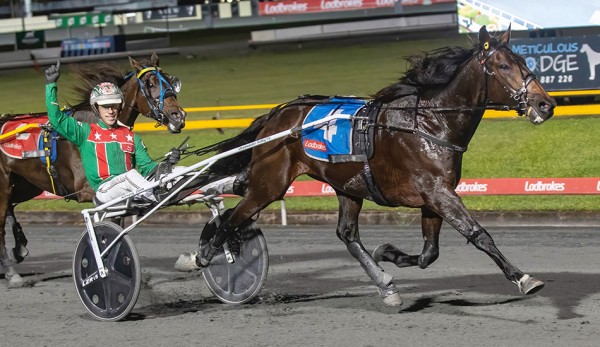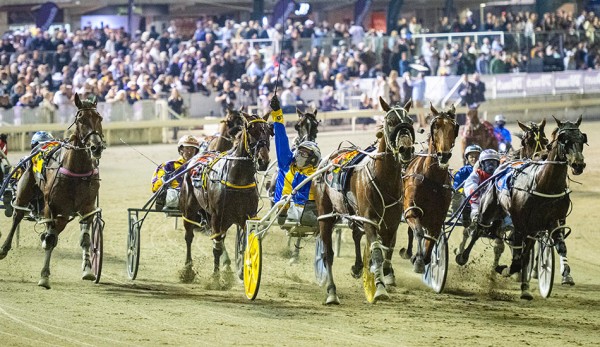Harness Racing New Zealand’s new Racing Calendar announced last week includes many new initiatives, and talking points. So we will bring you some more detail of some of the Calendar’s new features, and what it all means.
Sires’ Stakes :
Breeders and owners with eligible yearlings should all be clambering to get in touch with the Sires’ Stakes Board before the 1st of December.
That date represents the final day to make the two-year-old sustaining payment for Sires’ Stakes Series 39.
Thanks to changes made by Harness Racing New Zealand in respect to horses birthdates and the restructuring of the racing calendar, every current yearling / rising two year old has a live lotto ticket around its neck. Let me explain.
By virtue of genetics and mother nature, not all of us (human or equine) are born equal.
Not every foal is born with the composition to be an early two-year-old and while New Zealand has the richest resource for breeding standardbreds in the world, the climate can have a debilitating impact on when a mare conceives and subsequently has her foal.
Through no fault of the breeder nor the mare, plenty of foals in New Zealand are born on the back foot due to the structure of the dates associated with the Age Group race calendar.
Statically speaking and with exceptions to every rule, it has been very difficult for late December and January foals to compete with those three or four months older in age group classics. There are significant statistics to back that up, with no horse born after the 7th of December having ever won the three-year-old pacing colts final, and only a handful of champion juvenile pacers winning the two-year-old colts final born in December.
It is widely conceded that the juvenile trotters stand to benefit most from the changes. Of the winners of the Sires Stakes two-year-old trot final, Special Branch is the only December born foal to win the final with 16% (4) of the 25 editions having been won by horses born in November or later.
Breeders and owners making the two-year-old sustaining payment have traditionally done so less than five months out from their respective finals which have traditionally been in April and May.
The change to horses’ birthdates in New Zealand and subsequent changes to the Group, Listed and Feature Racing Schedule for the 2022 racing season, every rising two-year-old in the country will now have close to 12 months from the sustaining payment to work their way into contention.
This one was of the key outcomes of the changes made to the schedule; placing several of the age group classics at the back end of the calendar gives every young horse time to develop and a chance to fulfil its potential.
Sires Stakes Series 39 will see the following changes to its two-year-old series.
· Woodlands Stud Sires’ Stakes Two-Year-Old Colt & Geldings Final: 8th November (Cup Day)
· Dunstan Horsefeeds Sires’ Stakes Two-Year-Old Fillies Final: 11th November (Show Day)
· Lone Star Sires’ Stakes Two-Year-Old Trotting Championship: 11th November (Show Day)
The manager of NZ Sires’ Stakes, Martin Pierson, has been overwhelmed by the recent support for Sires Stakes administered races and believes that like himself, breeders and owners can see the positive outcomes as a result of recent change.
“We have just had a record percentage of the foal crop pay up to be Sires’ Stakes eligible and speaking to participants it is clear to me that the recent changes have had a heavy influence in changing mindsets.
“The cream will rise to the top, but at least now every horse in this country has an opportunity to fulfil its potential, and the Sires’ Stakes administered races will directly benefit as a result.
“I infamously said at my job interview that I believed some of our races were too early. We now have the two-year-old heats beginning four to five months after where their respective finals have traditionally been run. You would hope with more time to develop, we are going to see deeper fields going forward and that can only be a positive for the sport,” he said.
Sires’ Stakes Board Chairman, Peter Evans echoed those sentiments and was excited for what lies ahead.
“The changes to the calendar are going to have a big impact on the Series we administer going forward and no more so the two-year-old division.
“We are anticipating further growth in payments and ultimately growth in numbers of horses nominating for heats for the series going forward as a result. There has never been a better time to make your pacer or trotter Sires’ Stakes eligible,” he said.
With over $500,000 on offer for the three respective two-year-old heats and finals, now is the time to get involved and make the sustaining payment for your eligible yearling.
Remittance invoices will be emailed / mailed out next week with the sustaining payment due no later then the 1st of December 2021 – Brad Reid, HRNZ Breeding Manager.

